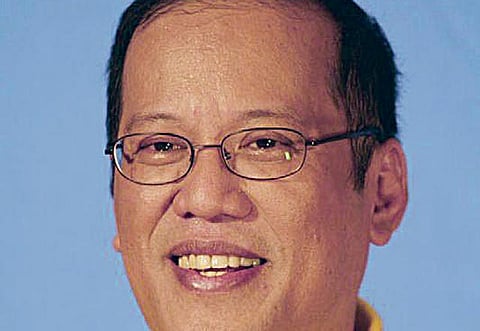Philippines President Benigno Aquino ‘open to receive China envoys’
President ready for talks over South China Sea issue

Manila: Philippine President Benigno Aquino has been receiving informal envoys from China to resolve soured ties with China, a sign that he is open to bilateral talks on rival claims in the South China Sea, a senior official said.
President Aquino “never closed his door to China; he was always available to whoever they (in China) sent,” Cabinet Secretary Rene Almendras confirmed in an interview with Gulf News.
It was the first time that a senior official revealed that informal talks between China and the Philippines already began, but Almendras did not give more details.
“Who are we to challenge China?” Almendras asked as he compared the Philippine and China’s armed forces as that of David and Goliath - referring to the Biblical story of a young boy armed with a sling when he faced a giant.
It was a follow up of Aquino’s combination of hard and soft stance when reacting to China’s flexing of wide maritime muscle in the South China Sea last Monday. He said, “We went through the arbitration (at the United Nations court) because that is a means to resolve the dispute which is consistent with a peaceful policy and in conformity with international law.”
“We are not here to challenge China, to provoke them into any action, but I do believe that they should recognize we have the right to defend our own interests,” Aquino added.
For the past two days, Chinese and American officials pitched in on the raging issue, after the Philippines submitted on Sunday a 4,000 page argument against China’s claim on the whole of the South China Sea, before the Hague-based United Nations International Tribunal for the Law of the Sea.
The argument, also called memorial by government officials, consisted of 10 volumes meant to strengthen Philippines’ claim on some parts of the Spratly Archipelago off the South China Sea, as provided for by the United Nations Conference on the Law of the Sea (UNCLOS) which grants 200 nautical miles exclusive economic zone to countries starting from their shores.
In reaction to this, Foreign Ministry spokesman Hong Lei was quoted as saying in China on Monday that the Philippines, in general, should be questioned for “illegal occupation of some of China’s islands and reefs”.
At the time, Liu added, “The Philippines forcing of international arbitration is not conducive towards resolving the Sino-Philippine dispute over the South China Sea.”
It was an apparent reaction to the statement of the United States State Department that backed the Philippine government’s elevation of its case versus China before the United Nations.
State Department’s spokeswoman Marie Harf was quoted as saying in Washington that the Declaration on the Conduct of Parties in the South China Sea, which was signed by China and the 10 member countries of the Association of Southeast Asian Nations (Asean) in 2002, has allowed countries claiming parts of the South China Sea to continue protecting areas they have claimed earlier.
For the past several years, instead of reacting directly to the claim of the Philippines on an eight-island chain in the Spratly Archipelago, China has taken several shoals on the South China Sea that are nearer to the eastern seaboard of the Philippines than the eight-island chain that Manila has claimed in the contested sea-lane.
China has taken over shoals in the West Philippines Sea, on the country’s exclusive economic zone in the South China Sea.
Sign up for the Daily Briefing
Get the latest news and updates straight to your inbox



